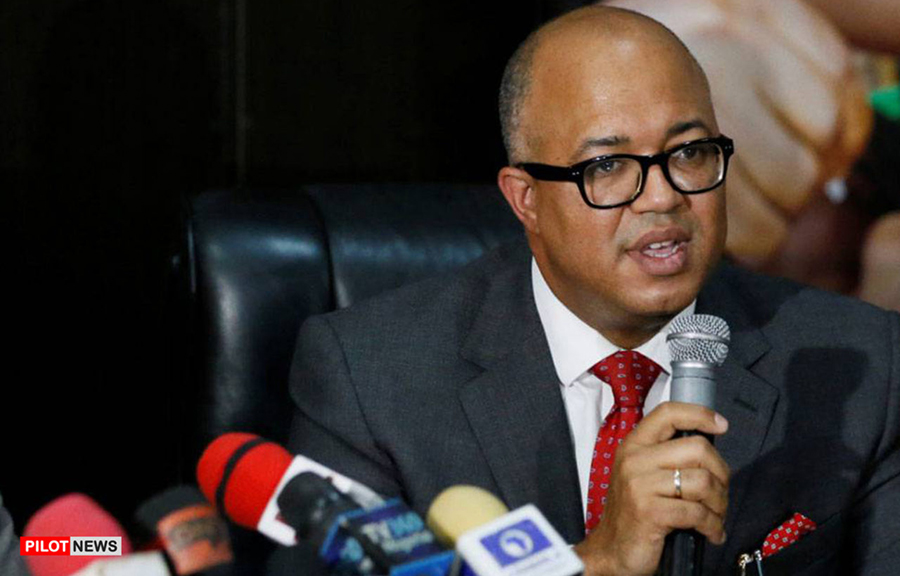We have often heard that January is the longest month of the year. This paradigm stemmed from the practice where many organisations paid their staff December salaries early to enable them prepare for Christmas. By the time they are done with the Christmas and New Year day celebrations, they are practically not only broke but broken financially from early January. The wait for January salary becomes an endless one. And you know when you are anxiously waiting for anything to come, minutes can become hours and hours become days in your mind.
I have never seen January as the longest month. January has 31 days just like March, May, July, August, October and December. The rest are 30 days except February which is 28 or 29 days, depending on whether or not it is a leap year. My case is probably different because I left paid employment before I got married, so there was no pressure of spending December salary preparing for Christmas and New Year celebrations beyond taking care of myself or even travelling home. I never had to buy new clothes and shoes for children as a paid employee. My December, January and other months depended solely on how well I managed my cash flow.
If you manage your finances well, January is no different from any month, but if you spend more than you earned in December and you have no extra or emergency funds anywhere, your January will be lonnnnnnnng. These assertions relate to staff of certain cadre. The salaries of senior executives are already humongous. By the time you add the Christmas pecks that come with the offices they hold, these assertions do not apply to them. There are also organisations that have 13th month policies. They are paid salaries twice in December or January to help staff cushion the effects of December spending, so these assertions do not also apply to them. But with our economic situation, some companies have jettisoned the 13th month policy.
The other factor that helps people is budgeting and fiscal discipline. A budget without fiscal discipline is as good as not planning. We already know there will be Christmas and New Year day. These days do not change, so you can plan ahead for them. After the New Year celebrations, schools resume and parents are confronted with fresh financial obligations. From your experience you already know your recurrent expenditure. You simply plan for them. Sudden unplanned events that requires huge expenditure, especially for people with lean resources, do happen and that is understandable, but beyond that, it all boils down to planning.
Ironically, January is the shortest month for some people. There are some parents who begged their children’s schools to give them till mid or end of January to pay the second term school fees. January is over, so how can January be long for such people if the money is not yet available? If they have their way, mid or end of January should never come but we are already in February. There are those who borrowed money to meet December expenses with the promise to pay back at the end of January. We are now in February and the money to do the repayment is not yet available. You think such people wanted January ending to come?
For over 10 years now, I have learnt how to make days, months and years run very fast. It is strange to me that we are already in 2025. Even 1999 seems like yesterday to me. I focus on activities and other things that make time fly by. I dread idleness. January is short for me. Every month is short. I take my mind off anything that will make time roll slowly. For instance, I focus on paying staff salaries, paying school fees and other bills because they make time run very fast. Before long the month is ended and another month begins. Before you blink, it is ended and you have to pay salaries again, no matter how bad business has been for the month. I have an older friend. He told me that at the end of month, he suffers pains in his hands and wrist because of the number of cheques he has to sign. I smiled to myself and said “it’s a lie. You are having heartaches because of the millions of naira leaving your company’s bank account in salaries and other obligatory monthly bills.” The man is very tight and hates spending money in spite of his enormous wealth.
Writing this column also makes time fly by for me because meeting weekly deadlines is very tasking. Another friend of mine’s strategy was to focus on paying his children’s schools. They were schooling abroad and it was not as it he saved money before sending them abroad. He was doing catch up. By the time he completed payment of salaries and bills for the semester or year, another one was here. The years flew by and belong his four children were out of school. That was a few years ago. These days, if possible have all the money for your children’s school fees and upkeep before sending them abroad. I do not like the enormous stress someone else I know who sent his children abroad went through. I will not put myself through that kind of pressure. He could have suffered heart attack or stroke catching up with his children’s school fees and bills. The pressure to meet if children’s fees and upkeep was just too much. Happily, he now has relief.
The bottom line of it all is financial literacy and financial planning. It is very crucial, especially in our current situation.
IMPLEMENTATION OF COMPULSORY MOTOR INSURANCE
Two weeks ago, on this column, I alerted motorists that from February 1, the Nigerian Police will commence the implementation of the compulsory Motor (Third Party) Insurance. It is compulsory because the Motor Vehicles (Third Party) Insurance Act of 1945, which took effect from 1st April 1950 and section 68 of the Insurance Act of 2003 make it mandatory for motorists to have the minimum third party insurance before they drive their cars on roads accessible to members of the public. I advised motorists that it is the minimum motor insurance. There are “bigger” ones: Third Party, Fire (TPFT) and Theft Insurance and Comprehensive Insurance. These are insurances which include the third party and coverage for own damage. Third Party Insurance, as the name implies, only covers the motorists for liabilities to other road users for property damage, bodily injuries and death. The policyholder gets no personal benefits, but the other motor insurances provide the owner reliefs for damage to and theft of his vehicle.
I am getting reports that some policemen are arresting people with TPFT and comprehensive insurances. The police need to be well educated. How can someone who scored 80 in an exam fail and you say the person who got the minimum pass mark of 40 per cent (third party insurance) passed the examination? The police should take note and the insuring public should know their right. In addition, all motor insurances have THIRD PARTY INSURANCE written on them. For TPFT and comprehensive, it means third party liabilities are covered. Be well informed and do not allow any uniformed person to harass or intimidate you.









